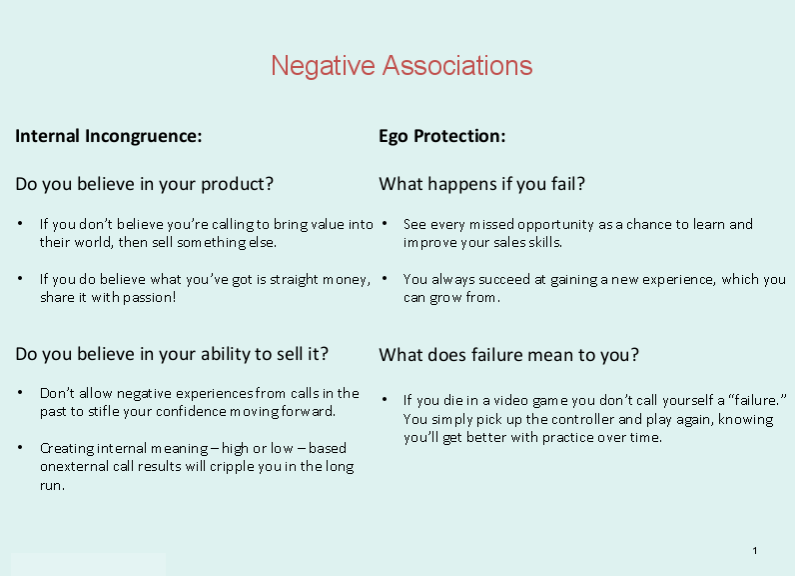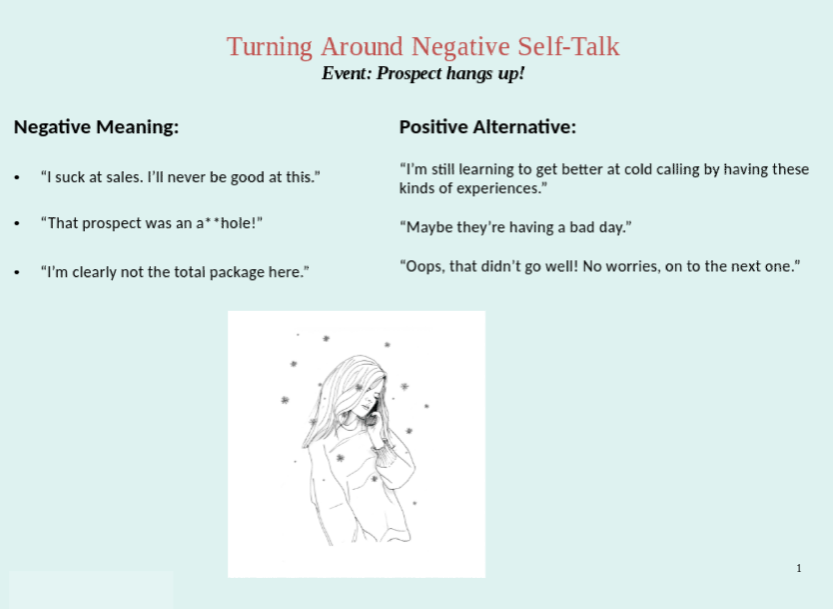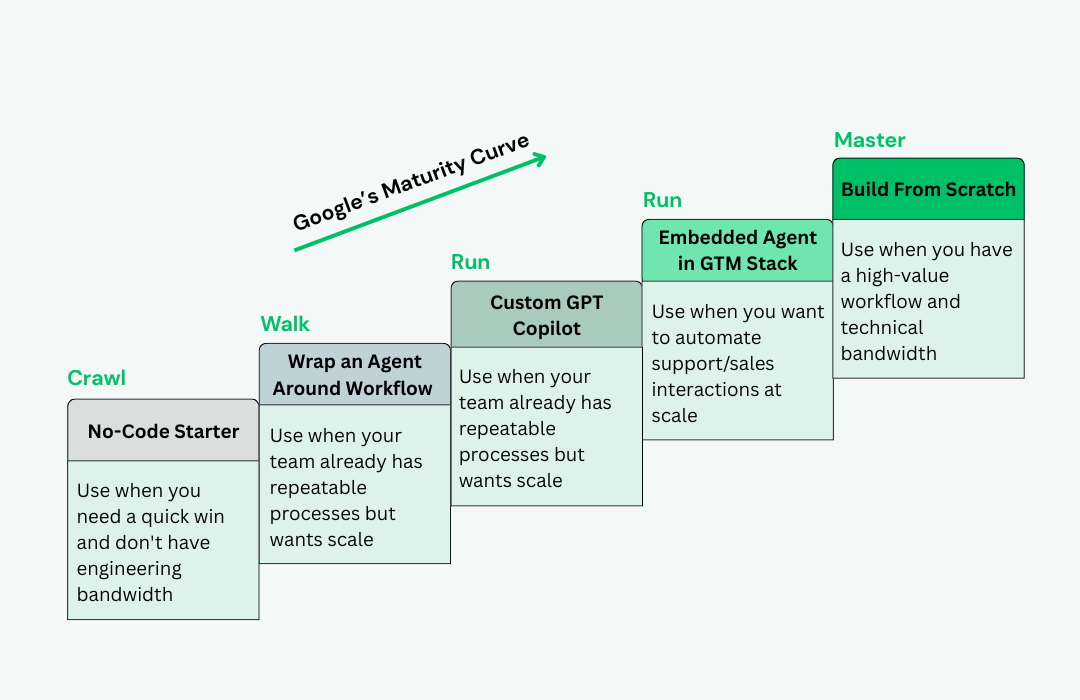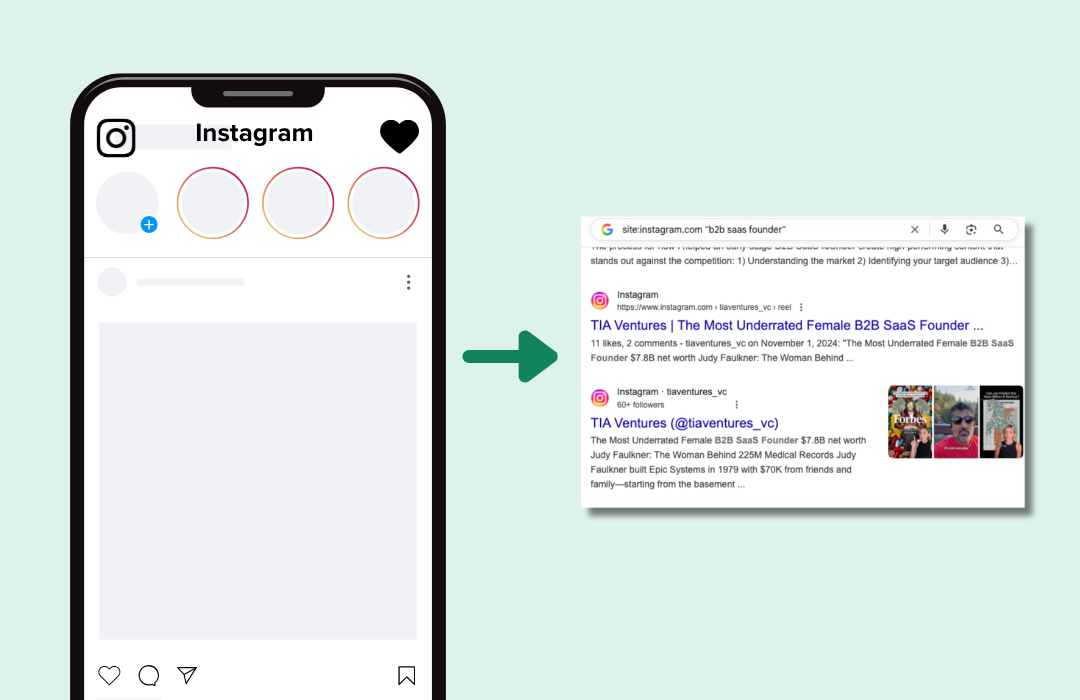We all know the research — most salespeople prefer shoveling snow to cold calling.
When was the last time you came into the office on Monday morning, high fived your neighbor, and said, “I can’t wait to start dialing!” This type of salesperson is a rare bird indeed.
The reason for this has nothing to do with the process of picking up the phone, or even the potential business won or lost on calls. It all comes down to your psychology & inner dialogue – because the meaning we give to things determines how we feel and subsequently how we act. What do you mentally associate with cold calling?
Negative emotions we link to this activity tend to stem from either some form of internal incongruence (maybe you don’t really believe in what you’re selling, or you aren’t speaking from your authentic voice) or from an attempt at protecting the ego.
Remember, the world of sales is not like The Matrix. When a call fails, you don’t risk death. You can’t live and die by your last phone call.

As salespeople, we have an incredible capacity to reframe the meaning of things. (e.g. It costs too much? The greater the investment, the greater the return, baby!) We can leverage this same ability on ourselves, by choosing a meaning for cold calling that empowers us to grow long-term, even from failure – or we can struggle to endure the highs, lows, and plateaus that will inevitably come in this game, by protecting our ego at the moment.
This is a choice – and it can be a conscious one. The secret is to focus on the process and let go of dependency on the results.
Nothing is worse than a pushy, needy, or desperate salesperson (who called you out of the blue on a Monday morning). These symptoms would come only from someone who is overeager to get a particular outcome out of you – rather than the attitudes of a trusted advisor who is calling to bring value into your life.
It’s not all about the words. You reek of your psychology through the phone line.
When you sell congruently and passionately, you can sell anything. When you call and you’re 90% sure it’s a worthy investment, you’re kidding yourself (but probably not the prospect). You’ve got to be absolutely certain.
*Please note: If you don’t believe in your product, then seriously consider selling something else. If you do believe it’s of value to your prospects, then remember that and focus on it when communicating.
Beyond the positive impact that letting go of outcome attachment has on a prospect’s impression of you, and on your own view about what you’re really doing, even a slight mental shift here can dramatically improve your experience, the quality of your conversations, and your success rate.

What creates anxiety in advance of cold calling? You’re attached to a certain outcome. “I need this call to work. I have this outcome I desperately need to get.”
What creates embarrassment or frustration after a prospect hangs up early? You’re attached to a certain outcome. “I should be better at this. I need to know I’m good at sales.”
Control what is within your control. It starts with your inner dialogue and how you frame things in your mind.
Instead of internalizing there’s anything wrong with you or the prospect when the stars don’t align, ask yourself, “What could I do to improve for next time?”
Not clinging to an outcome doesn’t mean you don’t set goals – process-oriented and long-term, growth goals. However, if you pick up the phone, and you think, “I need this call to close.” Then you are in for a very frustrating life in sales, my friend.
See the diagram below:
Amazing call: SOAR! ![]()
Terrible call: CRASH! ![]()
What an exhausting mental rollercoaster that would be, especially if you tied your self-esteem to it. Win or lose a given call, it’s critical to realize that cold calling is a skillset and your self-worth comes from within.

Remembering this will allow you to stick with the process long enough to become the salesperson you’re capable of being. It will keep you from getting down on yourself and burning out. It will also prevent you from getting too high from the highs and developing an unhealthy, externally validated ego – only to lose self-esteem when a call inevitably doesn’t go your way at some point.
The next time you pick up the phone, what if your brain chose to focus on, “Of course, I’d love for this call to go well, but today my outcome is to bring value to the prospects and practice this skill set.”
How might you feel going for that outcome? How might a mental shift like that impact how you sound? What about your ability to connect with that person?
What other positive outcomes might this create? ☺
Some food for thought,
Benja







